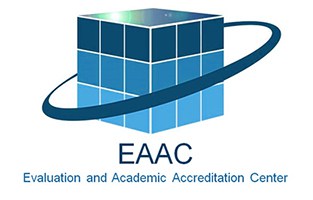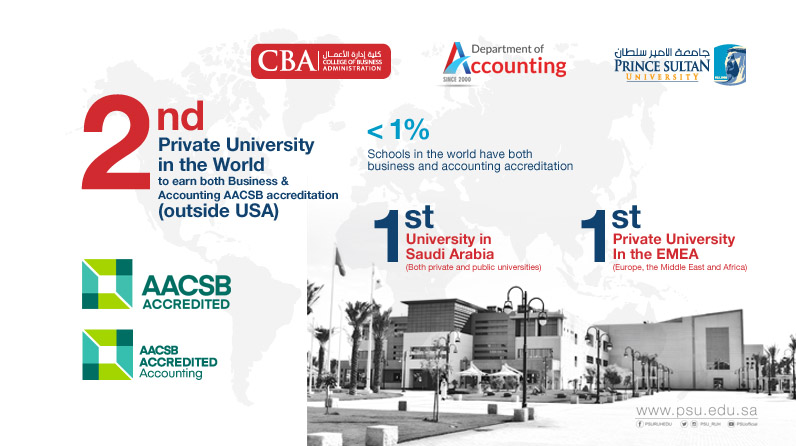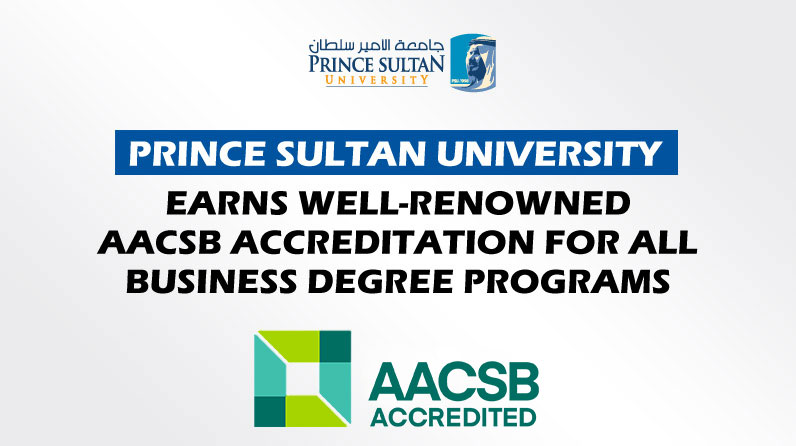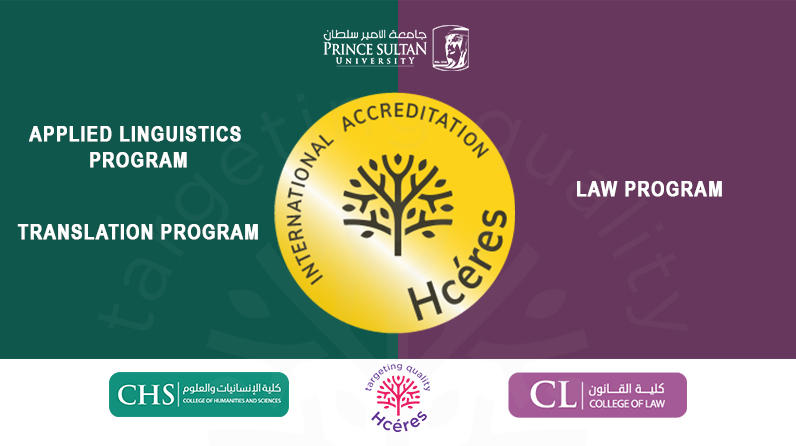The College of Humanities (CHS) programs, Applied Linguistics Program and Translation Program, and the College of Law (CL), Law Program, of Prince Sultan University (PSU) successfully obtained accreditation from the...
READ MORE
Prince Sultan University (PSU), with its commitment to uphold the Vision 2030 of the Kingdom of Saudi Arabia (KSA), aims to provide high-quality graduates that meet the highest international standards. The Evaluation & Academic Accreditation Center (EAAC) is committed to guaranteeing that the quality of instruction and services at PSU, meet the highest excellence standards set by accreditation and certification agencies and organizations.
Thanks to the collaborative effort of PSU management, academic and non-academic units, orchestrated by the EAAC, PSU has merited National Center for Academic Accreditation and evAluation (NCAAA) accreditation for the institution and its programs since 2010. More recent degree programs are in preparation for their turns for national and international accreditation.
History
PSU was chartered in 1999 for a purpose: to be a pioneer in higher education. Modestly starting small in size with 200 students and 20 faculty in Fall that year, PSU was the first private non-profit higher education institution in the Kingdom. Its focus was meeting the needs of the public and private sectors. This called for crafting the right mix of quality faculty, academic rigor, groomed soft skills, and infusion of a strong work ethic in all of the University graduates.
In its first decade in the new millennium, Prince Sultan University lived up to its slogan, “It is not the quantity that counts, it’s the quality” to describe its design and growth. Midway through the decade, the University set its sights on entering the list of Saudi universities going up for national accreditation that was for the first time called for in the Kingdom. To succeed in this endeavor the PSU established the Academic Assessment and Planning Center (AAPC) in September 2005.
The AAPC’s main task was (and remains) to guarantee the University’s educational programs and administrative processes, including support infrastructure, meet the highest standards. That task was met. In 2010 PSU – alongside the venerable pair of famed public universities KSU (1957) and KFUPM (1963) – were the first Saudi universities to be awarded full 7-year institutional accreditation by the National Commission for Academic Accreditation and Assessment.
In 2015, AAPC was divided into four centers. The Evaluation and Academic Accreditation Center (EAAC) is the senior center. The primary role of EAAC is to provide leadership and coordinate the necessary efforts to achieve and maintain National and International Accreditation at both the institutional and program level.
EAAC supports the mission of PSU by identifying areas of strength as well as areas for continuous improvement in the short, medium, and long terms. This is done by undertaking periodic self-evaluation of the core and supporting activities at PSU such as learning and teaching, quality assurance, research, community engagement, learning resources, and other institutional support services.
The Center initiates internal and external reviews and supports PSU’s strategic directives and plans based on best practices, performance standards, and benchmarks set by the Education & Training Evaluation Commission (ETEC). EAAC works with and assists with the NCAAA and international professional bodies such as ABET, AACSB and HCERES.
Vision
The EAAC aspires to be the catalyst of excellence in managing and facilitating evaluation and accreditation.
Mission
The EAAC aims to lead accreditation reviews, support institutional planning, and continuously evaluate higher education systems in a manner that ensures compliance with international standards, best practices, and sustainability.
Values
EAAC upholds its commitment to:
- ExcellenceEthical StandardContinuous ImprovementLifelong LearningOpen CommunicationProactive Leadership
Functions of EAAC
To liaise, share and disseminate information about standards of good practice with all organizational departments/units related to accreditation
To revise and monitor self-assessment and evaluation processes including report requirements
To coordinate and lead the preparation of periodic self-studies for consideration within the institution and for use in periodic external reviews
To monitor the institutional effectiveness and provide related support to the office of the President.
To liaise with national and international accreditation bodies
To provide consultation services to higher education institutions and various organizations

Evaluation and Academic Accreditation CenterNews

*Outside USA AACSB International (AACSB) announces that the Prince Sultan University, Riyadh, Kingdom of Saudi Arabia has earned Accounting accreditation for its Department of Accounting, College of Business Administration. Founded...
READ MORE
Prince Sultan University (the First Private Non-Profit University in Saudi Arabia) earns well-renowned AACSB accreditation for all Business degree Programs Prince Sultan University – Riyadh, KSA - business accreditation by...
READ MORE


